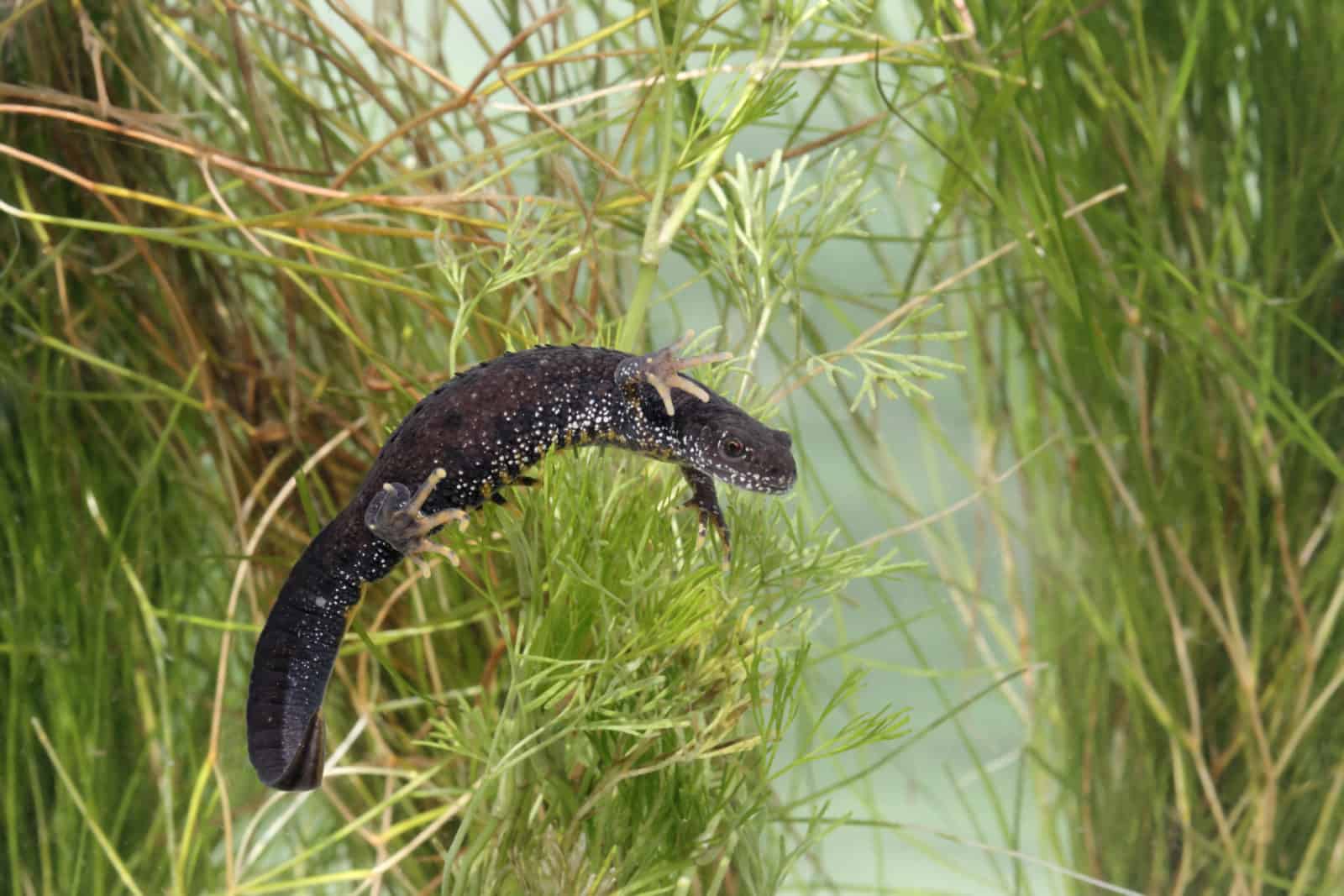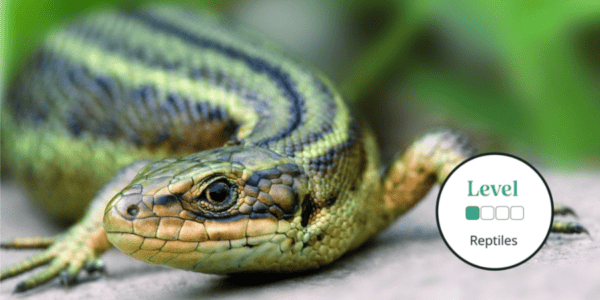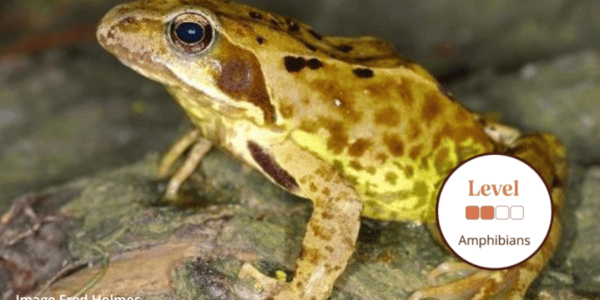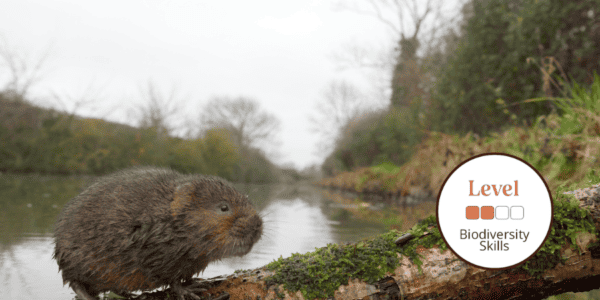This advanced course will cover great crested newt identification and ecology, survey techniques, the Habitat Suitability Index (HSI), and will include opportunities to practice netting, bottle trapping, torch, and egg searching.
This course will include:
- Species identification
- An overview of legislation
- Great crested newt ecology
- Survey methods, including opportunities to practice netting, bottle trapping, torching, and egg searching
- Survey planning
- Habitat Suitability Index (HSI) for great crested newts
- Ways of recording and sharing your results
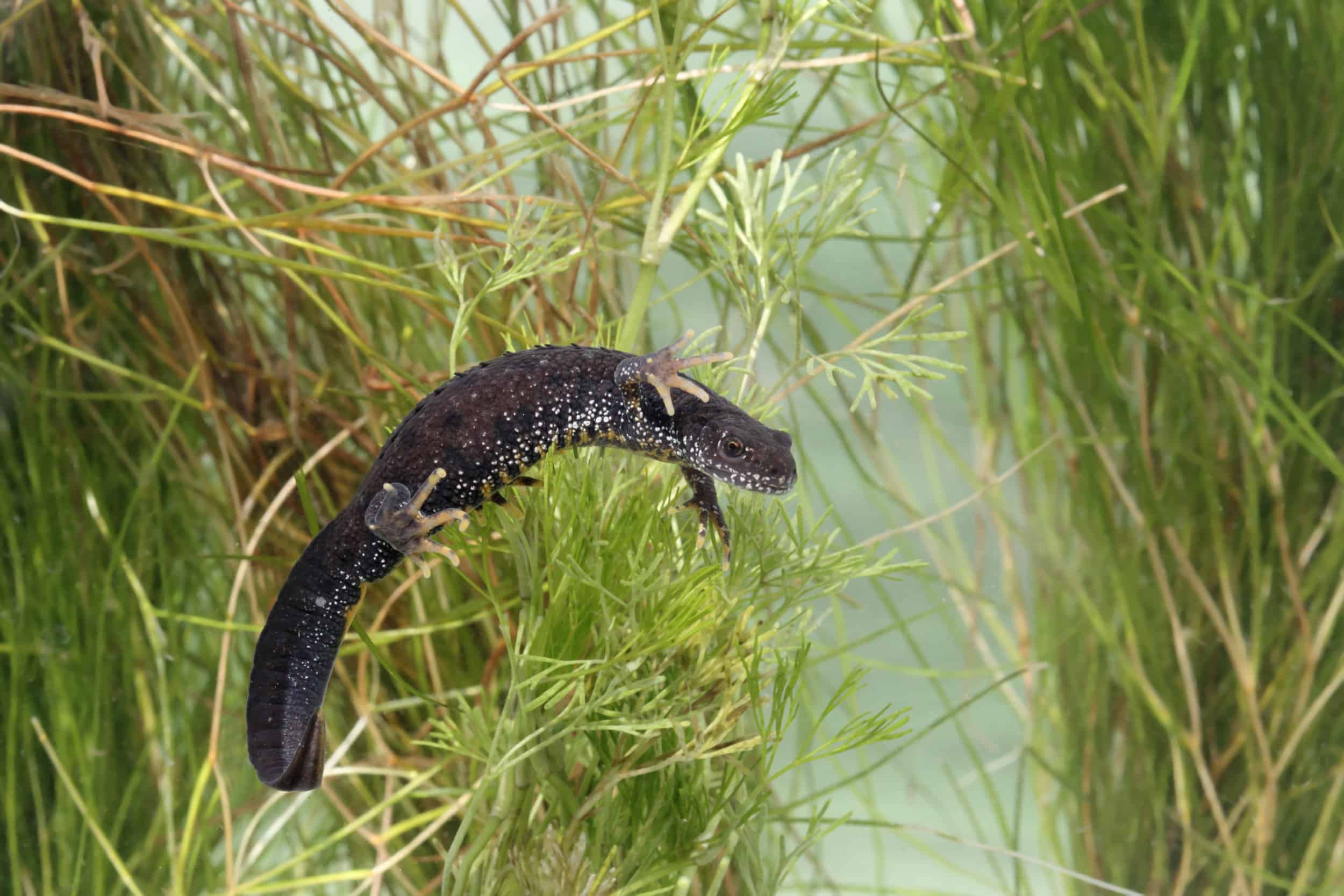
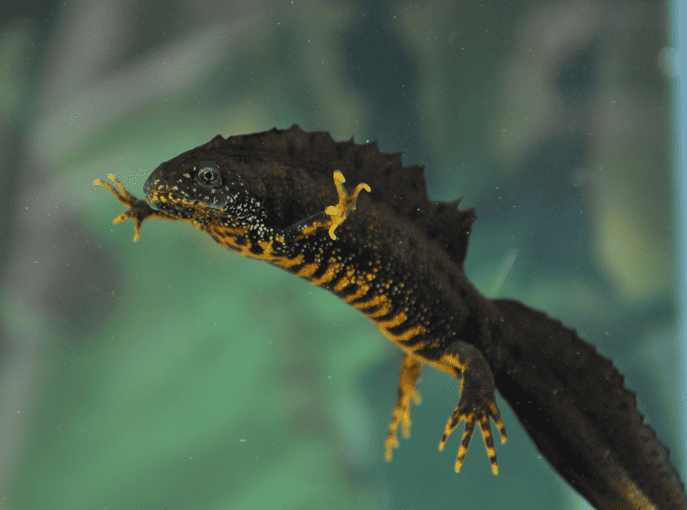
Read More
Great crested newts are fully protected in the UK and training/experience is required to gain a Statutory Agency licence to carry out surveys. This course will be delivered through a balance of classroom learning and opportunities to survey for newts at a variety of ponds, practicing the main techniques discussed and identifying the newts found.
Please note – Natural England will accept an attendance certificate from a training course as supporting material towards a great crested newt survey licence. Click this link for more information. All participants will be provided with a certificate for this course on the day.
By the end of the course, you will be able to:
- Confidently identify UK newt species, with a particular focus on great crested newts, and have a knowledge of their ecology that will help you plan surveys
- Describe and carry out a range of survey techniques for sampling for great crested newts
- Share this knowledge with friends, family, fellow volunteers and land managers
Who Should Attend? – This course is for anyone wishing to gain experience in newt surveying, whether for the conservation or ecology sectors, or through personal enthusiasm or volunteering as a citizen scientist recorder.
Knowledge Level – Advanced. Level descriptors can be found on the following web-page: Framework and Course Level Descriptors
Prior Knowledge – Some prior knowledge of UK amphibians will be beneficial.
PLEASE NOTE: There is no accommodation or meal facilities provided with this course. If we are unable to reach viable numbers for this course, we will inform you of the course cancellation 4-5 weeks prior to the course run. We would recommend when purchasing accommodation and/or travel you should take out your own insurance.
Refreshments (tea and coffee) will be provided.
Bookings will close if course capacity is reached.
Please email [email protected] if you have any questions.
About our partner, ARC
The Amphibian and Reptile Conservation Trust (ARC) was established in June 2009. ARC was created around the core of the Herpetological Conservation Trust (HCT), in response to the wider needs of herpetofauna conservation, providing the UK focus for all aspects of reptile and amphibian conservation. ARC continues to focus on the UK Biodiversity Action Plan, creating an extensive network of nature reserves, coordinating monitoring programmes and volunteer networks and developing an effective role in advocacy both within the UK and Europe.
About the Tutor
This course is delivered by more than one expert tutor. Your tutor will depend on the location of the course you book.
John Wilkinson
John is a conservation ecologist who has been working with amphibians and reptiles for over 25 years. He manages Regional, Science and Training Programmes for the Amphibian and Reptile Conservation Trust (ARC) and has a particular fascination for toads!
Mandy Cartwright
Mandy Cartwright is a conservation ecologist who has been working with amphibians and reptiles for over 15 years. She is the north Wales officer for Amphibian and Reptile Conservation Trust, where she manages a suite of reserves and projects dedicated to conserving amphibians and reptiles and their disappearing habitats.
David Orchard
David Orchard has completed a PhD at the University of Salford on great crested newts and their use of farmland. He has carried out numerous great crested newt surveys on a consultancy basis and has been involved with great crested newt survey training since 2006. He is also the county recorder for amphibians and reptiles in Lancashire.
Chris Monk
Chris Monk has been surveying great crested newts since 1985 for many conservation purposes. He has run training courses for organisations such as the Wildlife Trust, Peak District National Park Authority, and the Derbyshire Amphibian & Reptile Group. He is the County Recorder for amphibians & reptiles in Derbyshire.
Stuart Whittaker
Stuart Whittaker has an strong understanding and experience of working in nature. Stuart is currently a community woodland officer in the central belt of Scotland, he has specialities in delivering courses and guided walks on amphibians, bats, outdoor access, community development in green spaces and outdoor education.
Example Timetable
Timings of this course vary between locations, so please carefully check the times on the course run (the section where you can add the course to your basket towards the bottom of this page).
What's Included
The course has been carefully created by expert tutors and educators to help you continue to build and develop your knowledge and apply it within the field surrounded by like-minded individuals.
The course includes:
- Classroom learning covering the theory of the species
- Field excursions to apply new knowledge
- Expert tuition for which the Field Studies Council is renowned
- Clear objectives and progression
- Refreshments (tea and coffee)
You can rest assured that the absolute best content from an expert in environmental education will be provided. In choosing a Field Studies Council course, you will be joining thousands of people who learn with us each year.
Bursaries and Subsidies
Student Discount
This course is eligible for a student discount. If you are a current student, please use discount code BioStudent20 at checkout for 20% off all Biodiversity courses.
Natural History Bursaries
There are a number of natural history bursaries available to help with the cost of your course. To find out if you and your chosen course are eligible, read more here.
Before You Attend
What to Bring:
- Wellies, waterproofs, clipboard, paper, pen and a high-powered torch (if you have one)
- An empty 2-litre lemonade/coke bottle
- Please bring a packed lunch and drinks for the day
To note: Please ensure all clothing and footwear is clean and free of mud, Biosecurity is an important consideration, please note you may be asked to dip your footwear to prevent contamination prior to entering field sites.
When you book this course, you will receive a discount code for the Field Studies Council recommended guides below.
Recommended guides:
Field Studies Council Guide to Reptiles and Amphibians
British reptiles and amphibians, Howard inns
Additional supporting documents will be made available to you digitally before your course.
There will be a member of staff with first aid training and access to a first aid kit on site. If you have special medical or access requirements, please let us know as soon as possible so we can plan the course.
Opportunities to attend this course
-
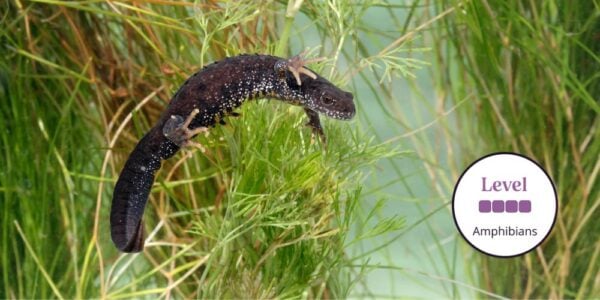
Sat 20, April 2024 11:00 - 20:30
The Centre is unable to offer accommodation with this course, please book local accommodation if you require overnight stays and ensure you take out the appropriate insurance. Directions and further information on Culzean Castle can be found here.
Sorry this course is out of stock
No current dates for this course? Click here to view all the upcoming Natural History courses.
Progress Your Learning
This is a training course from the Field Studies Council, delivered by expert tutors with an approachable learning style. After attending this course, you may like to progress your learning with further relevant courses or branch out into other areas of natural history. The Field Studies Council offers both online and in person courses, so you can choose the learning style that suits you best.
The course gives you the opportunity to immerse yourself in a new subject and acquire novel skills. Our online portal gives you time to study at your own pace and fit the lessons around your own schedule.
If you have any questions about our courses please check our Frequently Asked Questions or email [email protected].
Group Bookings Made Easy
If you have a group of 10 or more individuals wanting to complete one of our courses, our team are available to discuss your options – from discounts to private team courses. Click here to find out more!
You can rest assured that the absolute best content from an expert in environmental education will be at your fingertips. In choosing a Field Studies Council course, you will be joining thousands of people who learn with us each year.

